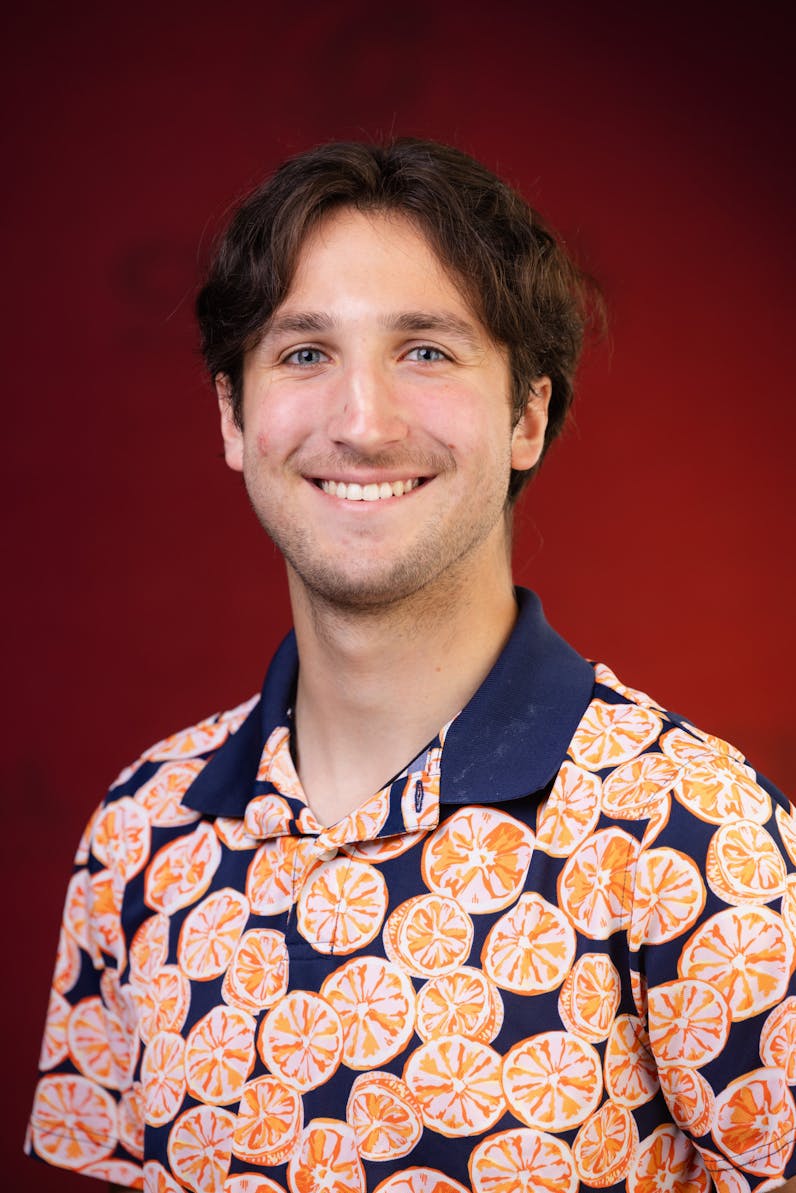'A duty and privilege'
Student leader Harry Krafchak talks voting

From 10-3 Central Civics and Central votes hosted Fire Up To Vote with walking tacos, games, and information on how to register for the November presidential election at Tuesday, Sept. 17 at Park Library Lawn. (CM Life | Jasmine Brookins)
The 2024 election is right around the corner, and with it comes a litany of new candidates, ideas and policies that will shape the future of our nation.
The right to vote and participate in our democratic system has been enshrined in the United States for hundreds of years, and it is not only our right but our responsibility to utilize that power. By doing so, we ensure that our government reflects our collective needs, values and beliefs.
One of the critical battlegrounds in the upcoming election is the state of Michigan. Michigan is widely regarded as one of the key "swing states" that could determine the outcome of the 2024 presidential election.
Alongside six other pivotal states, Michigan's role in the electoral college is crucial. In 2020, President Joe Biden won Michigan by a slim margin of just 2.6 percentage points, a close race that highlighted how every vote truly counts.
Similarly, in the 2020 Senate race, Democratic Senator Gary Peters narrowly defeated his Republican challenger, John James, by an even tighter margin of 1.7 percentage points. These razor-thin margins emphasize just how influential the Michigan electorate can be in determining the country’s political future.
As we approach the 2024 election, the race is even closer. As of September 19th, the two major presidential candidates are separated by just 2.7 percentage points. The margin is narrowing as election day draws nearer.
With two polar opposite candidates vying for control of the Oval Office, partisanship has become more evident and has had a profound impact on the American electorate. It’s becoming more crucial to have conversations about political division and the role it plays in shaping voter behavior.

In today's America, political identification has become so ingrained in personal identity that it often serves as a defining factor in one’s character.
Political polarization has reached a point where many Democrats and Republicans struggle to maintain civil conversations with one another, let alone engage in meaningful dialogue. Democrats are less likely to socialize with Republicans and vice versa, creating an atmosphere of hostility and division.
The abundance of political "noise" — from social media, news outlets, and political pundits — makes it increasingly difficult to discern what each side actually stands for. Instead of nuanced debates about policies and ideas, political discourse has devolved into tribalism and oversimplified narratives.
This growing tension has not only affected the national political landscape but has also trickled down to college campuses.
Over the past year, several events and personalities have made their way to our campus, influencing the way students and faculty interact with one another. Instead of promoting open dialogue and intellectual curiosity, external political factors have driven students apart, fostering an environment where ideological differences are magnified.
In some cases, political partisanship has led to a breakdown in communication, creating echo chambers where people only engage with like-minded individuals. This prevents genuine dialogue and perpetuates division.
Given the current state of political discourse, it’s clear that a change in attitude is overdue.
Regardless of your political affiliation — whether you're a Democrat, Republican, Libertarian, or hold any other beliefs — it's essential to make your voice heard. Voting is the simplest and most powerful way to influence the future of our nation.
Voting is not just a right, but a duty and privilege. As young people, we are the future leaders, innovators, and policymakers of this country.
Our decisions today will have lasting impacts on tomorrow. Take the time this November to invest in your own future by heading to the polls, casting your vote, and making your voice heard.
The future of this nation, our nation, is in your hands.
Harry Krafchak is a sophomore majoring in political science at Central Michigan University. As the Student Coordinator for Central Civics, he plans and hosts voter registration and education events across campus to promote civic education.







